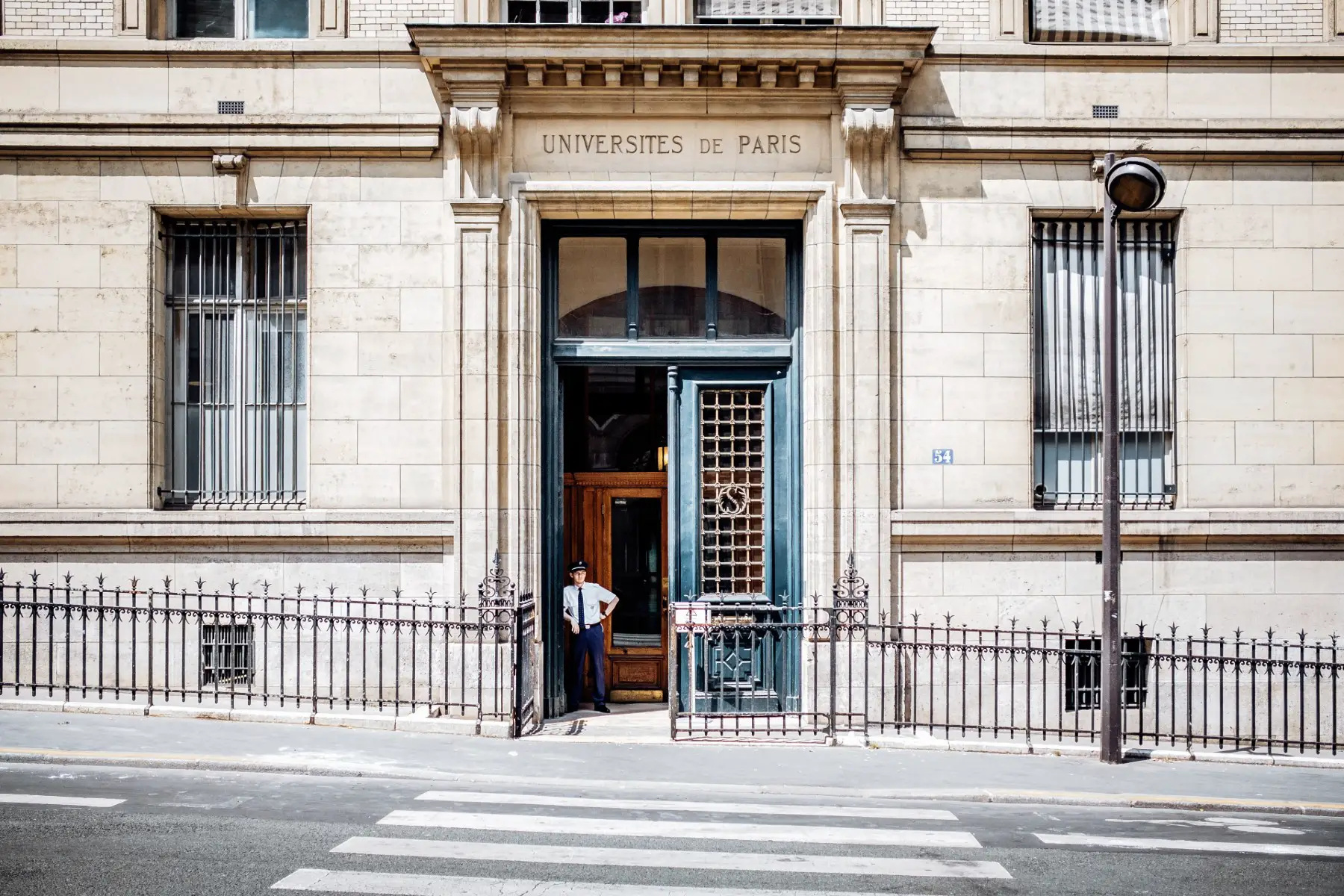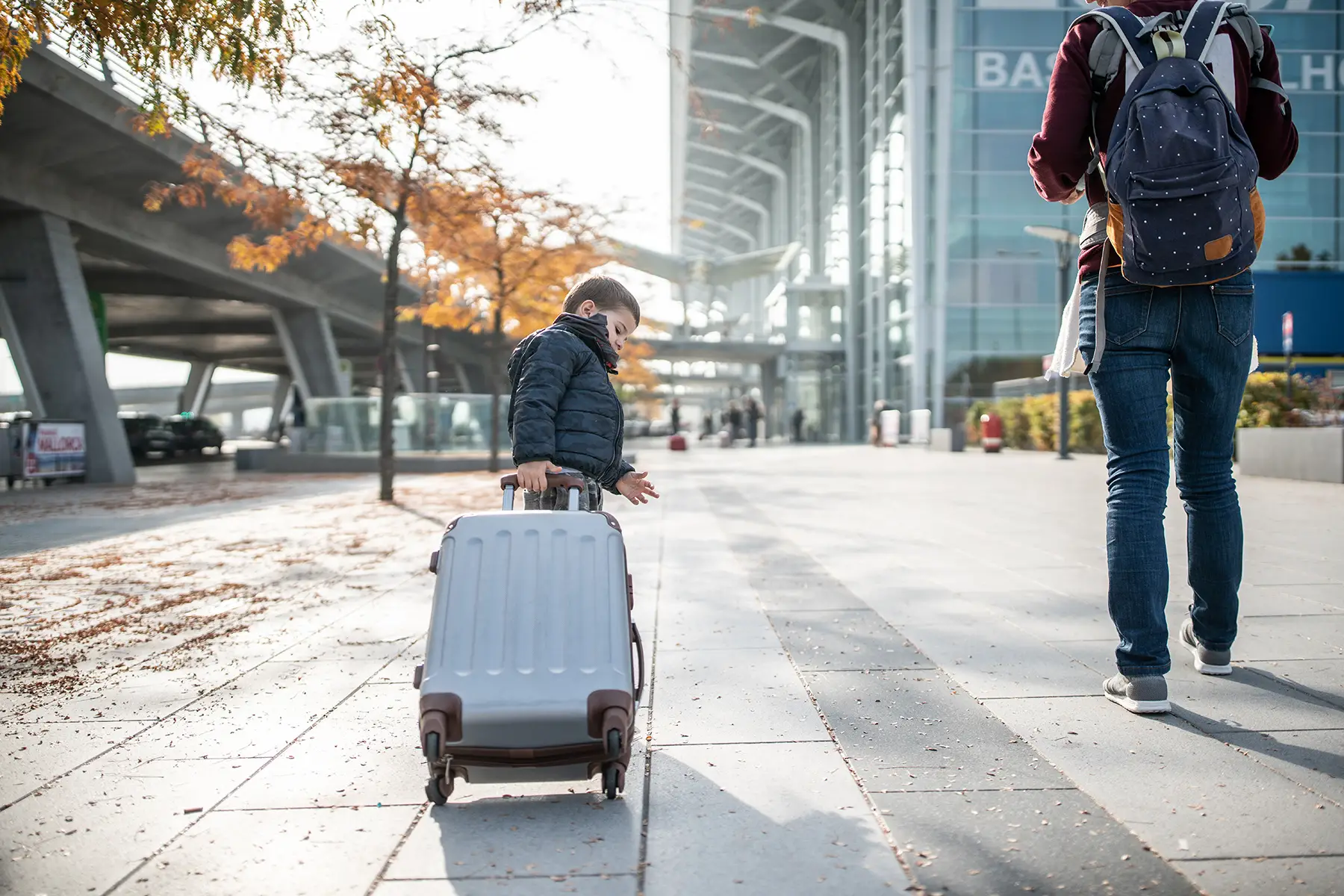Earning a degree from a foreign school or learning French in the land of wine and camembert is something that many people aspire to do. If you’re interested in taking a 30-day course, going to a French language class, or pursuing a university degree, you will likely need a student visa. However, your age, nationality, and occupation may affect your eligibility.
Learn all there is to know about French student visas in the following sections:
- Studying in France
- Who needs a student visa in France?
- UK students since Brexit
- Types of French student visas
- Short-stay Schengen student visa
- Long-stay French student visa
- Visa for school-going minors
- French student trainee visa
- Talent passport (researcher visa)
- Other student-related visas in France
- How to apply for a French student visa?
- What to do when you arrive in France
- Study grants and scholarships in France
- Transferring foreign qualifications
- Working while in France on a student visa
- Can family members join you in France?
- What happens after you get your degree?
- Appeals and complaints about student visas
- Useful resources
The Relocator
Planning a new life in France? Give yourself some peace of mind with The Relocator. On their easy-to-use platform, you'll be able to compare your options quickly, getting quotes from some of the biggest names in global relocations. Move abroad confidently with The Relocator.
Studying in France
France is a popular destination for international students, and with good reason. Three of its Paris-based universities feature among the top 100 best universities in the world. Students even rate three of its cities among the top 100 best student cities globally.

Many internationals are attracted to the relatively low cost of French higher education compared to some other countries. The French government covers most of the tuition fee for students from the European Union (EU) and the European Free Trade Association (EFTA), including Iceland, Liechtenstein, Norway, and Switzerland. If you are from outside those regions, France covers two-thirds of the costs.
That said, it is not that easy to come and study in France on a whim. You will need to meet strict academic and language requirements. You must also prove that you can support yourself financially and have accommodation.
Who needs a student visa in France?
The French Office for Immigration and Integration (L’office Français de l’immigration et de l’intégration, OFII) oversees all immigration to France and is responsible for processing French student visas.
You don’t need a visa to live or study in France when you are an EU/EFTA national. Also, if your studies or course take less than three months, you are likely exempt, depending on your nationality.
However, you will need a student visa when you are from a non-EU/EFTA country. If you are unsure, you can check the requirements for your country at the government’s visa wizard.
UK students since Brexit
Because the United Kingdom (UK) is no longer part of the EU due to Brexit, British nationals must adhere to the same visa requirements as citizens from non-EU/EFTA countries.

Students from the UK will need to apply for a long-term student visa if their studies take longer than 90 days. However, when you are enrolled in a course that lasts less than three months, you don’t need to apply for a visa.
Discover what else Brexit means for you if you want to move to France long term.
Types of French student visas
France has several types of student visas available:
- Short-stay Schengen visa (visa de court séjour étudiant) – for courses up to 90 days
- Long-stay French student visa (visa de long séjour étudiant) – for study programs longer than three months
- Visa for school-going minors (mineur scolarisé) – for children under 18 who want to study at a French school or college
- Student trainee visa (stagiaire étudiant) – for students wanting to do a professional work placement in France
- Talent passport (passeport talent) – for academic researchers who have at least a Master’s degree
- Other student-related visas – if you want to work during your holiday, take up volunteering, or remain in France after you graduated
Short-stay Schengen student visa
The short-stay student visa is available for non-EU/EFTA nationals who want to follow a course that takes up to three months (e.g., a French language course). The short-stay visa allows you to live in the Schengen Area for a maximum of 90 days within a 180-day period.

Some countries even have visa waiver agreements with the French government to allow their citizens to study in the country.
Keep in mind that if you are in France to take exams, you will also need a short-stay visa for student examination (visa de court séjour – étudiant concours). This applies even if you aren’t required to get a short-stay student visa.
Requirements
For a short-stay student visa, you must be at least 18 and have a minimum monthly income of €615 (unless you have a French scholarship). You’ll also need to be enrolled in a course at an accredited French school, institute, or university.
During the application process, you will need to prove that you have a return ticket to confirm the date of your departure.
Visa costs
The short-stay visa costs between €9 and €80. Some students can get a reduced rate of €35, based on their nationality. The fee should be paid with tax stamps. A tax stamp is proof that the tax has been paid (e.g., the ones you see on a bottle of wine).
Visa length
This visa is only valid for 90 days within a 180-day period. You cannot renew a short-stay French visa, but you can apply for a long-stay student visa instead.
Long-stay French student visa
If your studies take longer than 90 days, you will need the long-stay student visa used for Bachelor’s, Master’s, or Ph.D. degrees.

Requirements
The application process for a long-stay visa is the same as for a short-stay visa.
If this is your first year studying, or you’ve quit your studies and starting anew, you’ll have to register with Parcoursup. This is an online admissions platform with information on the university programs, course materials, and contact information for student ambassadors.
Depending on your nationality, you will need to register with Études en France (EEF) as well. This online platform helps you create a personalized file and get the ball rolling on your pre-registration and visa applications.
Visa costs
The long-stay student visa costs €50 and needs to be paid with tax stamps.
Visa length
You can use your visa for the duration of your course or degree, which is usually up to four years.
During the first year, you will get a valant titre de séjour – étudiant (VLS-TS). This is a one-year visa that also serves as a residence permit. After that, the student visa is still valid, but the residence permit is not. So, it is important that you apply for a 1-year temporary residence permit (carte de séjour temporaire) or a multi-year residence permit (carte de séjour pluriannuelle générale).
Note that if you are Algerian, you’ll need to apply for a residence certificate after your first year.
Visa for school-going minors
Children who want to attend school in France but whose parents or legal guardians live outside the country will need to have a visa for school-going minors.

Based on the duration of their studies, they will get a short-term or long-term visa.
Requirements
You’ll need to be younger than 18 on the issue date of the visa. Additionally, you need to be enrolled in a French school, college, or teaching center (e.g., language, arts, cooking, or sports). Your legal guardians must live abroad during the entirety of your studies.
Documents you’ll need to provide include:
- School reports of the previous year
- Certificate about your knowledge of the French language
- Parental authorization (e.g., a letter of consent)
- Contact details of a guarantor in France
Visa costs
The cost of this visa depends on your age, your nationality, and whether it is a short-stay or a long-stay visa.
Fee for short-stay visa:
- Free for children younger than 6
- €9 for children from former French territories
- €40 for children between the age of 6–12 (or €35 based on your nationality)
Fee for long-stay visa:
- €50 for students who are enrolled at a French school or university
The fee should be paid with tax stamps.
French student trainee visa
Students who go to France for a work placement with a French company or organization will need to apply for a student trainee visa. If you are doing an internship – rather than a traineeship – you’ll need to get an internship visa (stagiare).

Based on the duration of your traineeship, you will either get a short-term or a long-term visa.
Requirements
To qualify for this visa, your traineeship needs to be part of a training course, an EU cooperation program, or an intergovernmental scheme in the fields of education, training, youth, or culture.
You’ll need to have a signed training agreement with your school or university and the host company in France. If your placement lasts more than 90 days, the agreement must be validated by the French authorities first. There is one exception: Canadian nationals are not required to have their agreement signed by the local préfecture.
Lastly, you’re required to have a minimum monthly income of €615 unless you are taking part in an EU cooperation program or an intergovernmental scheme.
Visa costs
The cost of this visa depends on your nationality and whether you’re getting a short-stay or a long-stay visa. Your short-stay visa will cost between €9 and €80. If you need a long-stay visa, students will pay €50 and everyone else €99. Again, the fee should be paid with tax stamps.
Talent passport (researcher visa)
To attract foreign high-skilled workers, the government has created the Talent Passport. This multi-year French work visa is available to certain skilled employees and entrepreneurs, including academic researchers.

Academic researchers will get a long-stay visa (VLS) marked researcher (chercheur), while scientists who are part of an EU program will get a VLS marked chercheur mobilité. You can also get a VLS (chercheur mobilité) if you are part of an EU exchange or a multilateral program that includes intra-EU mobility measures. This gives scientists the freedom to move around the EU while doing their research.
The visa is valid for the duration of your contract, with a maximum of four years.
Requirements
You will need to have at least a Master’s degree and have a research position at an academic or research institution. Your study cannot take more than four years.
Visa costs
The standard cost of a talent passport is €99. You will need to pay your fee with tax stamps when you apply.
Other student-related visas in France
There are a number of other French visas that can be relevant to students:
- Working holiday visa (vacances travail) – 1-year visas for young people (18–30) wanting to work and travel in France, only available to certain nationalities
- Internship/trainee visa (stagiaire) – for paid internships to learn professional training, valid for the length of the training
- Volunteering visa (volontariat) – for volunteering work in France, valid for one year but can be longer
- Au Pair visa – a 2-year visa for young people (18-30) who stay with a host family to learn French and help with childcare
- Residence permit – Job Search/Business Creation (carte de séjour – recherche d’emploi/création d’entreprise) – for non-EU/EFTA students with at least a Master’s degree from a French university who want to stay or return to France to look for work or start a company. They must apply for this visas within four years of their graduation
- Temporary resident permit (autorisation provisoire de séjour, APS) – for students who have gotten their degree from a French university and want to look for work or start a company. This visa is only available to certain nationalities.
How to apply for a French student visa?
You can use the same online portal of the OFII to apply for any of the French student visas; the process is the same.

You usually need to provide copies of the following:
- Valid passport or photo ID
- Two recent passport photographs
- Proof that you’re enrolled in a course or have entered a work placement
- Proof of income (e.g., bank statements)
- Details of your accommodation
- Proof of health insurance
Depending on the visa you’re applying for, you might have to supply additional information. Once you have submitted your application, you will need to provide your biometric information at a visa application center. This should be done at least two weeks before your travel date.
What to do when you arrive in France
In the first few months after moving to France, you will need to validate your residence permit within three months of your arrival. Once that’s done, the OFII might contact you to carry out an integration process. This consists of the following:
- A personalized interview with an OFII agent
- Civic training
- French language test
- Signing of the Republican Integration Contract (Le contrat d’intégration républicaine, CIR)
Other things to consider during your early weeks in France are:
- Registering for French healthcare
- Opening up a bank account in France
Study grants and scholarships in France
France has several grants and scholarships available for international students.

Funding sources include:
- The Foreign Ministry (ministère de l’europe et des affaires étrangères, MEAE)
- The Ministry of Higher Education (ministère de l’enseignement supérieur, de la recherche et de l’innovation, MESRI)
- European funding like Erasmus+
- Local government
- Funding specific to individual universities or colleges
- International institutions, NGOs, and foundations
- Private funding sources
You can use the grant search engine on the Campus France website to discover more about higher education scholarships.
There are also school grants for international children (under 18), which you can find at ÉduConnect (you need to set up an account first).
Transferring foreign qualifications
If you already have a degree or diploma, you can get them transferred, translated, and recognized in France through the ENIC-NARIC France Center. You can do this online, but keep in mind that official documents need to be translated into French first.
The transfer costs €70 (€20 for the initial assessment and €50 for the certificate of recognition). Refugees, asylum-seekers, and those with humanitarian protection don’t have to pay these fees.
Working while in France on a student visa
Students don’t need a separate work visa, because it is already included in their residence permit. They are allowed to work up to 964 hours a year (i.e., around 60% of normal working time in France). If you are Algerian, you can only work 803 hours a year, which is around 50% of normal French working hours.
If you’re in France for an apprenticeship or traineeship as part of your studies and your placement requires more than 964 hours a year, your employer will need to apply for a temporary work permit.
Can family members join you in France?
Students can bring over their spouse and (dependent) minor children after having lived in France for 18 months or longer.

Other requirements you’ll have to meet are a minimum income (e.g., a monthly wage of €1,329.05 for a family of two or three) and proof of suitable accommodation.
If you want your family to join you, they can apply for a family reunification visa (regroupement familial). They will then receive a VLS-TS and residence permit that they need to validate within three months of their arrival in France. The cost of the visa is €99, and €225 for the residence permit.
Researchers on a Talent Passport don’t have to wait 18 months but can bring their spouse/partner and (dependent) children with them straight away.
What happens after you get your degree?
Your student visa is valid for the entirety of your studies. If you decide to get a second degree in France, you can renew your student resident permit online.
In theory, once you have completed your studies, your visa will expire, and you’ll have to leave France. In reality, however, you can apply for another visa that allows you to stay in France and look for a job.
Graduates with a Bachelor’s degree (CGE Level 1) or a Master’s degree can apply for a Job Search/Business Creation visa and residence permit. This VLS-TS allows you to stay in France for one year to find a job or start a business. You can apply for this visa within four years of your graduation. The minimum salary requirement for this visa is €2,518.42, (2022) and it’s not renewable.
Some students can also get a temporary resident permit (autorisation provisoire de séjour, APS). This visa is available to certain nationalities only and is valid for up to one year. In some cases, it is renewable. One of the requirements is that you need to have a professional Bachelor’s or Master’s degree, and you’ll need to earn 1.5 times the minimum wage (i.e., €2309.13 in 2022).
If you have already found a job before your student visa expires, you can contact your local préfecture to change your status from student to employee. You will get a new residence permit marked salarié or passeport talent. A prèfecture has administrative, policing, and security duties and delivers residents’ passports, residence permits, and driver’s licenses.
Appeals and complaints about student visas
If your student visa has been refused, you can file an appeal with either the French embassy or consulate in your home country. You can also address it with the Visa Appeals Board (Commission de Recours contre les Décisions de Refus de Visa) in France. You need to do this within two months of the rejection. When you go through the Visa Appeals Board, your appeal must be in French.
If you are still unhappy with the outcome, you can appeal your case to the Ministry of the Interior (Ministère de l’Intérieur). If all has failed, your final option is to go to an administrative court. Do keep in mind that this last step involves getting specialist legal help and can be costly.
Useful resources
- Études en France – platform to apply to one or more degree programs in French universities
- France-Visas – official visa website for France
- Campus France – government website for students in France
- OFII – French agency in charge of migration
- Service-Public – portal for the French government’s public services
- ReloAdvisor – a platform for comparing rates for domestic or international movers









